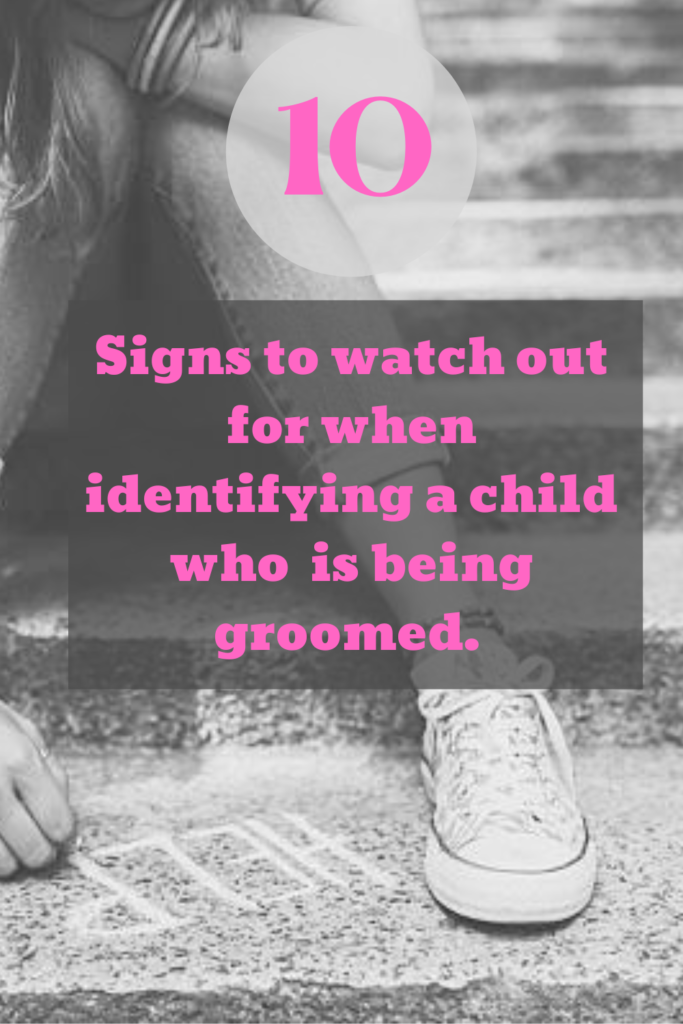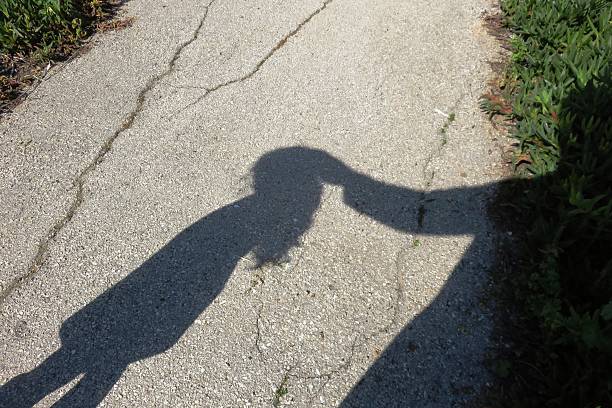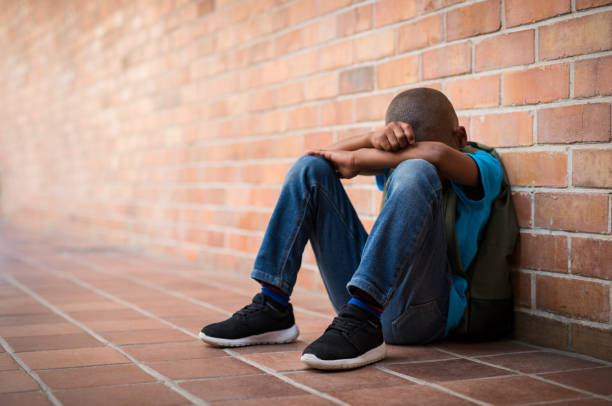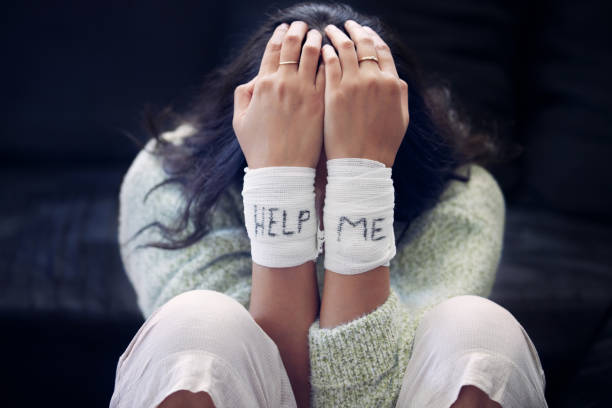
This article is written to advocate and support https://helpingsurvivors.org/. If you know of someone who is being groomed and preyed upon please contact them for support and advocacy.
DISCLAIMER: All the opinions expressed here are purely my own and I’m not a licences therapist. Please seek professional help for you or any children in your world if you find this happening to you.
In this day and age, there’s a lot of advocacy and awareness around the issue of grooming. A quick definition of grooming is when an adult uses tactics of manipulation to target, trap, and eventually sexually molest a child. There are many tactics used over time to manipulate and trick a child into a dangerous situation. Unfortunately, it can happen most often in families right under the parent’s noses. Young children don’t often get groomed by complete strangers (unless they have access to the internet) they will often be targeted by friends of the family, the family themselves, or any adult who they consistently see over a long period of time. This doesn’t mean you have to be paranoid about every adult your child interacts with. We are going to go over 10 different signs you can watch out for to keep your child safe.
- Isolation– The goal of any abuser is to create distance between a child or person who is their target and the caregiver or family. This is done in a few ways. One is starting to cast doubt on the caregiver’s intentions and motives. Another way is using the victim’s pain to create a separation between them and their caregiver. Here’s an example of that. If a child has been corrected by a caregiver the predator will ask why the child is so upset and say oh they were wrong to correct you you didn’t do anything bad. With that, they re-enforce the negative feelings and it can create a bonding moment. They can also say things like they just don’t understand you but I know how you feel. These false comforts bring the connection to a child who at the moment really needs someone to connect to. Slowly over time, they will build walls and secrets that only are shared between them. This creates a perfect target for a child to be hurt and no one knows because by the time it happens the separation has already taken place. If you notice a child who is pulling away consistently and is gravitating towards a certain individual for comfort keep an eye out for any of the other signs.

2. Overly Sexual Behavior– If you notice that a child in your care or in your world is exhibiting overtly sexual behavior it’s time to figure out where that is coming from. One of the ways a predator can find their prey is by identifying children who have already been preyed upon before. If a child has already suffered from sexual abuse it’s likely they will become a target again to another predator. Usually, they can give off a sexual vibe or signal that can be picked up by people who prey on children. Behaviors to watch out for are flirting, masturbation, suggestive body movements, or even wearing sexy clothing. I will caveat this by saying some children have a fun silly nature about them and they really don’t have any exposure so you have to really discern and match it with other behaviors and signs.

3. Aggression- If a child is being sexually abused and no adult is there to protect them their behavior can be very aggressive in everyday life interactions. There can be giant mood swings that seem to be triggered out of nowhere. I will say that children are emotional beings in general but usually, they can figure out how to regulate themselves on some level if they are in a healthy and safe environment. If a child is being exposed to being abused on a consistent basis their world is unsafe and unpredictable and because of that, they become overtly aggressive in an attempt to protect themselves from the harm they are expecting. Aggression is an indicating behavior of undealt with fear. This can be another indicator of abuse.

4. Depression– For some reason we tend to relegate depression to adults but in reality children can suffer from it as well. Usually, it’s an indicator that something is wrong in their environment. We can experience depression when we are the target of control and manipulation and children are the same. We are not created for someone to control us no matter what the adults in the world believe. We are to be guided, loved, connected to, and helped. When a child is the victim of sexual assalt the will dissasociate from their bodies at times to protect themselves. This can be seen as withdrawn, hiding behavior, or extended sleeping patterns. If you notice a child who doesn’t seem to enage with others and who seems more adult with their responses and interaction it can be an indicator of abuse.

5. Eating Disorders– We often think of eating disorders as more applying to females but in reality it can also apply to males. The nexus is eating disorders are caused by this idea I’ll eat more to become unattractive to protect myself or I hate my body and I won’t eat so that I get the comfort I find through relationships no matter how unhealthy they are. They can stem from some sexual abuse and often start to manifest when they are a young child. Not every child who has an eating disorder has been sexually preyed upon but it can be an indicating factor in determining if there’s something going on. If you observe severe fluctuations in weight or strange eating habits in younger children who shouldn’t have problems it’s often a sign that something isn’t right.

6. Self-Harm– We have heard so many stories of teenagers who self harm and how the reason is because their was some sort of abuse in the environment but what about littlier children? The big thing I have seen with this is self hitting. I had a foster daughter who was in my house who hit herself a lot. She would also very often hit her head against the wall or floor when she was upset. Her self harm was re-enforcing the lie that she wasn’t worth protecting. It doesn’t mean that all children who hit themsleves or bang their head against the wall or floor is being abused. However, if there’s a consistent behavior that leans towards the self-harm side it can be another indicator of sexual abuse. Another reason for self harm is believe it or not it can be a form of self-regulation. It helps the child feel in control of their world again.

7. Recieving Gifts- Often people who target children for grooming will give the child gifts. Sometimes they can be expensive or something that they always wanted. This will build rapport with children by winning them over through things they always wanted. First thing we tell children about stranger danger is they should never take anything from a stranger but what about an adult who they know? Not every adult who gives a child they know a gift has evil intentions but there usually is a pattern. Usually it’s not on the childs birthday or special occasion, it can be expensive or something the child has always wanted, and the gift giving pattern is pretty frequent. If you notice this behavior coming from someone along with the other signs ask the child about the gifts. I’ve heard from survivors that the gifts were given after a moment of abuse as a reward of sorts for letting their perpetrator do that to them. This is another idicator of something that is just not right.

8. No Boundaries- Boundaries are important to learn as a child grows. We all have to know what appropriate behavior is expected in our world to function in it. When we talk about children we know that they are just learning boundaries but there are some indicators and instincts that children are born with that will regulate and keep them safe. One big one is attachment. When a child is appropriately attached as an infant they will look to their parent before walking that first step or going into another room. They check with their parent to make sure that they are ok. Children with good boundaries will shy away from strangers or new situations and cling to their caregiver and this is a very normal behavior response. However, children who run up to strangers without looking for their caregiver, have no physical boundaries with people, or don’t look for a caregiver when wondering off can have what is called RAD. Reactive Attachment Disorder is a disorder where children are not bonded properly to their caregiver so they just attach themselves to whoever is around them.
I had a foster daughter who had RAD and she would walk up to anyone on the street and just hold their hand or hug them. She had no fear of a stranger picking her up or taking her away. This is a very scary place to be in with a child. Predetors look for these kids because they are easy to manipulate and tartget and very easy to take away from care givers. This doesn’t mean the kid is friendly it means they aren’t attached to any one person so they become attached to everyone they meet. It’s a very dangerous place for a child to be in. If you see a child like this in your world watch them carefully because they are perfect targets for abusers and most likely the reason they are that way in the first place is because they have been abused.

9. Withdrawn From Family– Often times we will think of sullen teenagers at family events not wanting to be engaged with the world around them but what if a small child is withdrawn? Because a lot of abuse occurs in families watching a child and how they engage or disengage with their family members is an indicator of how they feel around that person. I never force a child to “act” a certain way with a family member just because they are family because children can tell us something is wrong through their reactions. Maybe there’s a reason why your child doesn’t want to sit next to their uncle. Being an observer of behavior allows for you to catch a reaction and from that reaction become an explorer into why they exhibited that behavior. Asking good questions and not accusing a child helps them to feel safe enough to share what’s going on. Validating feelings is important. Even if you don’t feel it it’s important make sure they feel supported through their responses.

10. Disengaged in School- Often times with children who are being abused especially sexually their school performance is lacking. It makes sense of course if they are in survival mode they aren’t going to be thinking about the math problem they have in front of them. What is important to know is that instead of focusing on fixing the studying part of their school focus on what happened to them? When we ask the question what happened it helps to determine the root of their concentration problems instead of continuing to address the academic side we can find the root of why it’s becoming so hard for them. I know as a teacher it can be hard to manage all of the children in your class but if you notice a child who is particularly disengaged ask some questions so that you can come up with a permenant solution or expose abuse that could be happening.
With all of these signs it indicates someone either abusing them or taking advantage of them on some level. When we come up with solutions for these problems we have to create plans of care for these children so that they have the tools to adapt as they grow older. What can you do? Get help. Below is a great organization that helps with children read their article here on grooming.
Thank you for all that you do helpingsurvivors.org !
For more articles on trauma and fostercare here are some below!
💜 How to Work with Traumatized Kids
💜10 Tips to Becoming a Foster Parent

Sign up for the FREE GIFT below!
uCNMTsnPxb